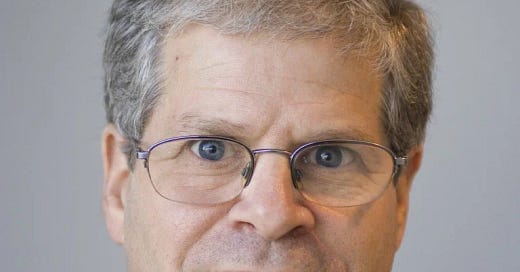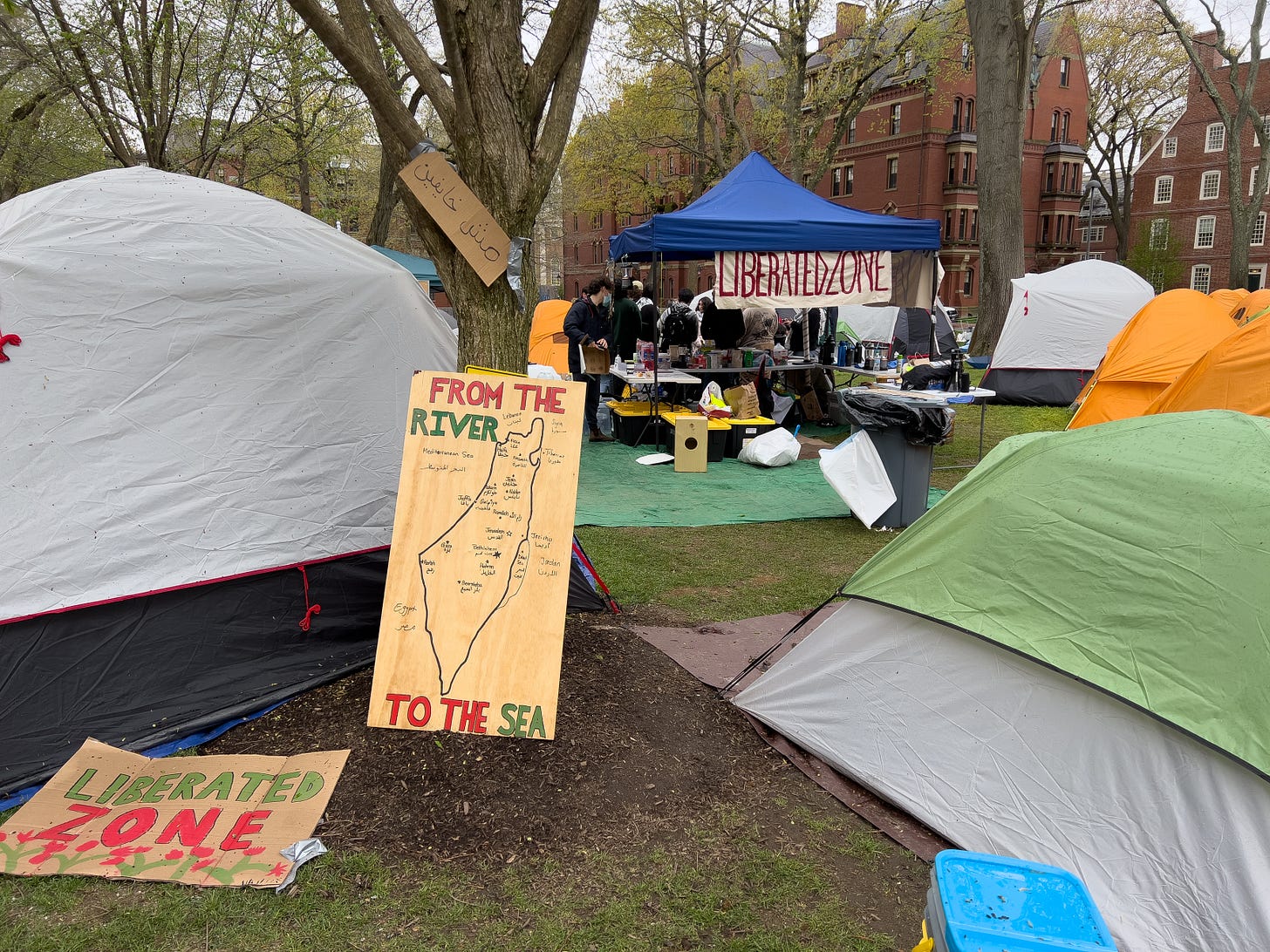09.18.2024
Family feud behind Celtics sale? | Controversial Wu tax plan takes fire from key state senator | Universities appeasement of anti-Israel activists could boomerang, AJC warns |
News tips? Story ideas? Email us at sbvanvoorhis@hotmail.com
Reasons to be skeptical: Harvard and other colleges are betting that appeasement of anti-Israel activists - with a dash of disciplinary threats - will prevent a repeat of last spring’s campus chaos
Two weeks into the fall semester and so far so good.
There are few signs of the campus takeovers and angry student mobs that upended higher education across the country after last October’s Hamas terror attack on Israel and the ensuing Gaza war.
So is this just the calm before the storm or have college presidents at Harvard and other universities finally gotten a handle on the situation?
Rob Leikind, New England director for the American Jewish Committee, hopes it’s the latter but told Contrarian Boston, in an interview this week, that he remains concerned.
In April, Brown University agreed to put protestors demands for divestment by the Ivy League institution from Israel before its board as part of an agreement to end the encampment on the school’s Providence campus.
Closer to home, Harvard reversed a decision to suspend five students for taking part in the purportedly pro-Palestinian encampment activists had set up on campus, the Harvard Crimson reported back in July.
Earlier this month, student activists pushing Harvard to pull endowment money invested in Israel and Israeli companies were granted an audience with President Alan M. Garber and Harvard Corporation Fellow Mariano-Florentino Cuéllar, according to the Crimson.
Leikind worries that taking steps to placate radical activist groups like the ones driving last spring’s anti-Israel, and at times antisemitic campus theatrics, sends the wrong message.
“I understand the motives and the intentions, but of course the message simply is if you want something, then make an encampment and create something to bargain with,” Leikind said. “That is a troubling precedent.”
Meanwhile, Jewish college students New England remain worried that there could be a resurgence of the campus convulsions and disorder that topped headlines for months earlier this year.
Many reported harassment and worse as activists took over sections of university campuses and even buildings and chanted anti-Israel and at-times arguably antisemitic slogans.
At Harvard, for example, a map of Israel with the slogan “From The River To The Sea” - complete with with Arabic names below the names of major Israeli cities and towns - was prominently displayed outside the student encampment, as Contrarian Boston reported back in May.
The river-to-the-sea slogan was condemned last fall by now former Harvard President Claudine Gay as antisemitic, who noted in a statement that it implies to a “great many people … the eradication of Jews from Israel.”
“There is a toxicity and a maliciousness that has become part of the experience that many students have,” the AJC’s Leikind said.
For Jewish students, experiences can vary widely from campus to campus, with the atmosphere at some universities, like Columbia, particularly challenging. The New York university was a hotbed of protests last spring.
“At least in some parts of the country, being Jewish and affirmatively identifying with the rights of Jews to a homeland” can “lead to marginalization, discrimination, harassment,” Leikind said.
Not on the Wu train: Key state senator raises concerns over Boston mayor’s plan to hike tax rates on struggling downtown office buildings
Blasted by business groups, Boston Mayor Michelle Wu’s toxic tax plan now faces increasingly long odds of clearing the State House.
A case in point is State Sen. Nick Collins, who Contrarian Boston caught up with Tuesday evening.
Keep reading with a 7-day free trial
Subscribe to Contrarian Boston to keep reading this post and get 7 days of free access to the full post archives.





